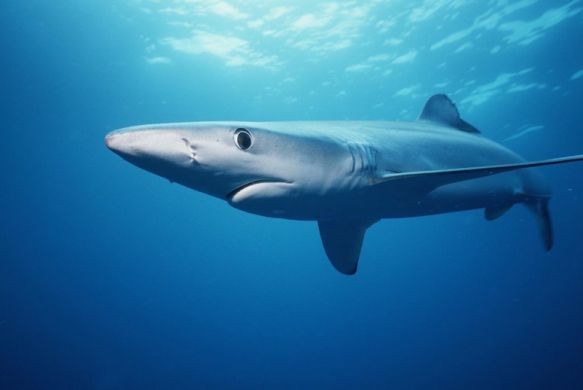Fewer Sharks Are Being Caught—and That's Not Good News

Let’s start with the good news: Fisheries around the world are catching far fewer sharks than they used to.
Shark catches are down more than 20 percent from their peak in 2003. That year fishing fleets around the world netted 900,000 metric tons of sharks.
Sharks and related species such as rays and skates—collectively known as chondrichthyans—have been overfished for so long that at least 25 percent of the 1,000-plus known species are threatened with extinction.
The past 10 years appear to have been better for sharks. According to the United Nations Food and Agriculture Organization’s annual fisheries report, shark catches have been stable at 760,000 tons since 2005. That, the organization theorized, may be because new management controls such as bans on shark finning have reduced the number of sharks caught.
Now to the bad news: According to a paper published Monday in the journal Fish and Fisheries, the reason why fewer sharks are caught is just that there are fewer sharks to catch. The paper mainly blames overfishing and coastal development for the decline in sharks, rays, and skates, and fishing practices still need to improve worldwide to protect these increasingly rare fish.
“This is another line of evidence that points to widespread overfishing of chondrichthyans,” said one of the study’s authors, Nick Dulvy, cochair of the Shark Specialist Group for the International Union for the Conservation of Nature and a professor at Simon Fraser University in Burnaby, British Columbia. Although the analysis showed that a variety of species suffered, one in particular stood out. “What surprised me the most was the increase in blue shark catches,” said coauthor Lindsay Davidson, a Ph.D. candidate at Simon Fraser University. Blue shark fishing, she found, has increased by 60,000 tons since 2003. As other species have declined, demand by diners for blue shark, which is usually eaten salted or smoked, has risen.
“Without this massive increase in this one species,” she said, “the global decline in shark fishing would have been much steeper.” The increase is mainly driven by Spain, which has become the biggest shark-fishing nation in the world simply because it is catching so many blue sharks. The species is listed as near threatened, two steps above endangered.
The paper’s conclusions may appear bleak, but Dulvy said it also contains good news and solutions. “It’s not as if countries haven’t been improving their management,” he said. “Countries have been quietly improving things, and they haven’t necessarily been recognized for this. There are a lot of unsung heroes in governments around the world.”
Dulvy said the big takeaway from the paper is that the United States, Australia, Canada, and other countries provide a road map for how other nations can improve their fisheries management to benefit sharks and other species.
“One of the big problems with studying biodiversity loss is it’s a very depressing business,” he said. “The only way we’re going to save biodiversity is if we realize that we can save biodiversity and there are very specific tools we can use. This paper provides that.”
Photo - Blue Shark by Mark Conlin / NOAA



